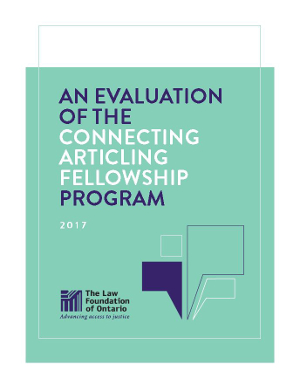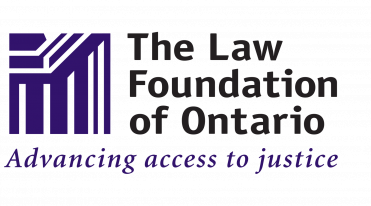 A new evaluation by The Law Foundation of Ontario provides insights into how articling programs can increase access to justice for linguistic minorities and rural and remote residents.
A new evaluation by The Law Foundation of Ontario provides insights into how articling programs can increase access to justice for linguistic minorities and rural and remote residents.
The Foundation conducted an evaluation of its Connecting Articling Fellowship (CAF) program and found that the program had a positive impact on meeting community needs and provided high quality training to articling students.
Part of the larger Connecting Project, the CAF program funds articling students at community legal clinics to provide legal services to linguistic minorities directly in their own language and/or to rural and remote communities. The CAF program began in 2009 and will conclude in 2019.
What we learned
We asked the directors of host community legal clinics, current and former articling students, and those engaged in articling and licensing for their feedback on the successes and challenges of the CAF program. We believe their insights, coupled with the analysis of the CAF program contained within the report, are a valuable resource to help those who are interested in how to use articling and experiential learning to improve access to justice.
In summary, we learned:
- The CAF program increased the number of legal services available to linguistic minorities and rural/remote populations and, in particular, increased the services provided in areas of law that are relevant to the low-income population
- First language services and culturally competent services improve the quality of the service for clients
- Articling students received excellent training through the CAF program that included progressive responsibility for files supported by training and mentoring
- The host organizations were strong community partners and provided high quality supervision and training
- The 10-month placement period and turnover of students without any period of crossover in some locations produced challenges for outreach to and building relationships with linguistic communities
- Forty-four percent of fellows who were placed in rural or remote areas continued to practice in these areas after the fellowship ended
- Students who were given the opportunity to provide services in a language other than English or French further developed their ability to deliver legal services in that language over the course of the fellowship
Read the full evaluation report here.
Evaluation goals and methodology
The evaluation process began in 2016 and explored the CAF program overall, with a focus on outcomes. It also looked at how changes to the lawyer licensing landscape have impacted the program.
The evaluation consisted of interviews with host organizations, past and current Connecting Articling Fellows, and those knowledgeable about the lawyer licensing landscape. It also included a review of program reports provided by the host organizations and participants over the years.
The evaluation furthers our progress on achieving our priorities as set out in the Foundation’s Strategic Plan 2016-2020 and specifically relates to our goal of better understanding and communicating the impact of our funding.
Work continues to reduce barriers for linguistic minorities and people living in rural and remote areas of Ontario
While the Foundation funding of the CAF program ends in 2019, the Foundation will continue its work to help those who experience barriers to access to justice, particularly linguistic minorities and rural and remote residents of Ontario.
For information about our continuing support of the Connecting Project, please visit our Connecting Project webpage. For a list of all grants made by the Foundation, please visit our Grants Made webpage.
About The Law Foundation of Ontario
Established by statute in 1974, The Law Foundation of Ontario is the sole foundation in Ontario with the mandate of improving access to justice. Through granting and collaboration, the Foundation invests in knowledge and services that help people understand the law and use it to improve their lives.

